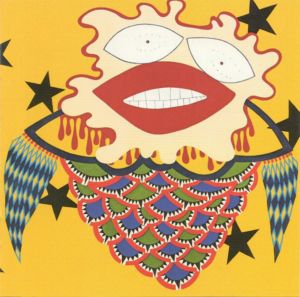
- Format: FLAC

Quah — Jorma Kaukonen's (guitar/vocal) solo debut effort — was recorded and issued shortly after the dissolution of Jefferson Airplane in 1974. In contrast to the sonic indulgences of Grace Slick's Manhole or Paul Kantner and Jefferson Starship's Blows Against the Empire, Kaukonen retreated back to his folk-blues roots along with vocalist Tom Hobson — who contributes to "Blue Prelude" and "Sweet Hawaiian Sunshine" — to create this intricate acoustic masterwork. From the highly original artwork — courtesy of Kaukonen's then-wife Margareta — to the stark and beautiful melodies within the grooves, Quah is unlike any other recording from the era. Much of the album's vibe is strikingly similar to the final contributions that Kaukonen made to Jefferson Airplane. The most obvious and direct correlation being "Third Week at the Chelsea," which maintains much of the same intimacy as the tracks "Genesis," "Flying Clouds," and "Song for the North Star." Likewise, his admiration for folk, blues, and gospel — which had first surfaced on the self-titled Hot Tuna debut release — informs the content of this disc on his cover of Rev. Gary Davis' "I Am the Light of This World" as well as the haunting traditional blues "Another Man Done Gone"and Blind Boy Blake's understatedly ribald "Police Dog Blues." Tom Hobson's inimitable vocal delivery stands apart from Kaukonen's in a somewhat theatrical manner. His take on the noir torch song "Blue Prelude" could not be more dissimilar to the practically giddy "Sweet Hawaiian Sunshine." Yet both are equally functional in the context of the rest of the album. In 1987 Relix magazine issued a very limited pressing of Quah on CD. Tragically, it was not re-pressed and remains near the top of want lists from enthusiasts eager to retire worn vinyl copies. This disc is a timeless and highly underrated statement from one of the world's premier guitarists. It is worthy — if not quietly demanding — of repeated listening.